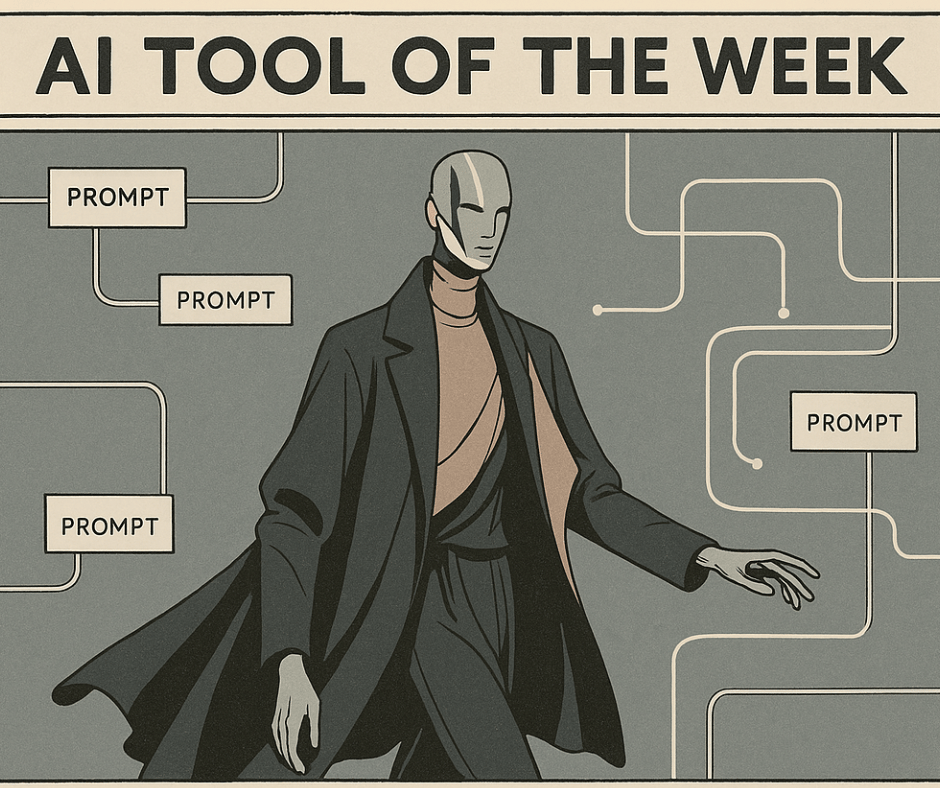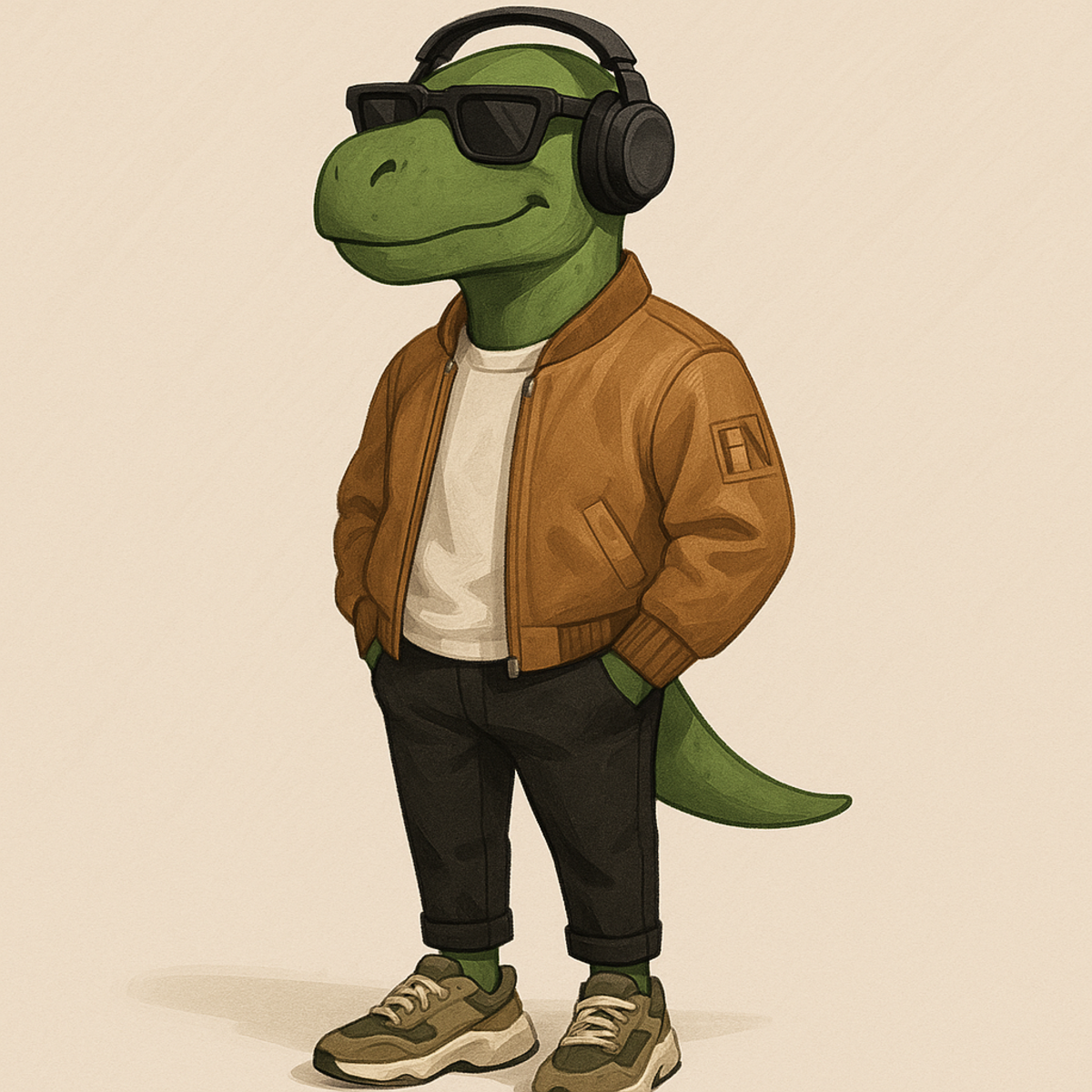Hey there,
This week, we talk search — and how it just became your stylist.
At Google I/O, AI stole the spotlight. But buried in all the demos and developer buzz was something fashion insiders shouldn’t ignore:
Search isn’t about keywords anymore. It’s about vibe.
That means the biggest force in online shopping just shifted — and it’s dressing your product for the customer, in real time.
If you’re in fashion, here’s what that means (and why your next best hire might be a search bar).
Here’s what’s inside:
✅ Google’s AI Shopping Shift – and how to show up in mood-based search
✅ Swipe File: How Everlane is using virtual try-on to reduce returns
✅ Tool of the Week: Google's new AI Shopping Mode
✅ Fun Fact: Napoleon’s sleeve buttons? Total nose-wiping deterrent
⏱️ Total read time: 2 minutes 47 seconds
Feature Story
Google’s search bar just became your stylist
New tools let shoppers browse by vibe, restyle your photos, and skip straight to the “add to cart.”

TL;DR
Google just changed how people shop online. Again.
But this time, it’s not about better ads or smarter phones. It’s about style — how it’s searched, how it’s shown, and how it sells.
If you're in fashion, here’s what just quietly shifted under your feet.
The What — Google’s New AI Is Basically a Personal Stylist
You probably didn’t watch the full Google I/O keynote. Most people didn’t. But here’s the one-line summary:
“Search isn’t about words anymore. It’s about meaning — and mood.”
For fashion brands, that’s a big deal. Because now, when someone goes looking for “something that feels like Italian summer,” Google doesn’t show a bunch of blog posts. It shows outfits.
Styled. Shoppable. Sometimes, totally AI-generated.
And yes — your brand can be in that mix.
1. Mood-Based Search Just Became a Thing
People are no longer searching with product names. They’re searching with vibes.
“Something Sofia Richie would wear on vacation.”
“Outfit for a museum date when it’s 72 degrees out.”
“Shoes that match this bag I saw on TikTok.”
Google’s new tools understand those prompts and surface actual products that fit — even if the original search didn’t include a single product keyword.
Why it matters:
Your product might not match the words. But it might match the feeling.
That’s a whole new path to conversion.
2. Basic Photos Are Getting a Makeover
Your plain white background shot?
Google can now dress it up.
Literally.
It can drop your dress into a rooftop party scene, add golden-hour lighting, and tweak the colors to match the shopper’s mood — all automatically.
Why it matters:
You don’t need five different lifestyle shoots.
One good product photo can now turn into a campaign — powered by Google.
3. Try-Ons Just Got Personal
No more guessing what “true to size” really means.
Google’s improved virtual try-on tool now shows what clothes look like on different body types — moving naturally, not mannequin-stiff.
It even adjusts the image based on the shopper’s preferences: fit, color, silhouette.
Why it matters:
Fewer returns
More confident buys
Smaller brands can compete on polish
You don’t need 10 models. You need one clean asset. Google handles the rest.
4. Styling Advice Is Built Into Search
Here’s something new:
When shoppers Google “how to style cargo pants,” Google doesn’t just show blogs anymore. It shows styled outfits — with real products, linked to shop.
Your product can show up as part of the solution, not just an option.
Why it matters:
Search is turning into a stylist.
Brands that show up with answers (not just items) get the click — and the sale.
Who Benefits Most?
Short answer: anyone who sells clothes online.
But here’s who really wins:
DTC brands with lean teams: One product shoot → ten stylized looks.
Retailers with lots of SKUs: Google helps match the right product to the right moment.
Brands built on aesthetic: Vibe-based search = algorithmic moodboarding. If your look is strong, you rise to the top.
Key Takeaway
Google just turned the search bar into a showroom.
And it’s styling your product before the shopper ever clicks.
You don’t need a million-dollar ad budget to win online.
You just need the right photo — and the right moment.
Google handles the rest.
Swipe File (Real tactics used by Fashion brands)
Steal-This Play |
|---|
Brand & Move | What They Did | Steal-This Play |
|---|---|---|
Everlane – Integrated Google's Virtual Try-On | Everlane participated in Google's virtual try-on feature, enabling shoppers to view how their women's tops fit on diverse models directly within Google Search. | Ensure your product listings are optimized for Google's virtual try-on by providing high-quality images and detailed product information. This enhances customer engagement and confidence by offering a more personalized sho |
The Runway Reel
This week, i created this time capsule about Fashion in Paris in 1926. Made using AI. have a look
Tool Time
AI Tool of the Week: Google’s AI Shopping Mode — Like a Stylist in Your Search Bar

What it is:
Unveiled at I/O 2025, Google’s new AI-powered Shopping Mode lets users describe what they want ("a chic black dress for rooftop cocktails") — and it delivers product matches styled to that mood.
It works like a chat, but shops for you.
Why it matters:
Fashion brands don’t need to guess what keywords to target anymore. If your product fits the vibe, it shows up — even if the shopper never types your brand name.
Bonus:
If your listings have clean product shots + detailed descriptions, Google's AI can even style and display them in context — like a campaign, without the campaign budget.
A Final Note
Fun Fact
Napoleon started the trend of buttoning suit sleeves.
Legend has it Napoleon ordered buttons sewn onto his soldiers’ jacket sleeves — not for fashion, but to stop them from wiping their noses on their uniforms.
Over 200 years later, we still sew buttons on suit sleeves… that serve absolutely no purpose.
Lesson:
In fashion, the weirdest details often last the longest.
Sometimes form does outlive function.
Let me know what you thought of this edition.Until next time,




